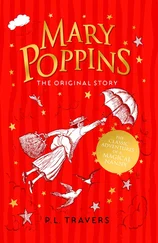Mary Macleon - The Shakespeare Story-Book
Здесь есть возможность читать онлайн «Mary Macleon - The Shakespeare Story-Book» — ознакомительный отрывок электронной книги совершенно бесплатно, а после прочтения отрывка купить полную версию. В некоторых случаях можно слушать аудио, скачать через торрент в формате fb2 и присутствует краткое содержание. Жанр: Европейская старинная литература, Драматургия, foreign_dramaturgy, на английском языке. Описание произведения, (предисловие) а так же отзывы посетителей доступны на портале библиотеки ЛибКат.
- Название:The Shakespeare Story-Book
- Автор:
- Жанр:
- Год:неизвестен
- ISBN:нет данных
- Рейтинг книги:4 / 5. Голосов: 1
-
Избранное:Добавить в избранное
- Отзывы:
-
Ваша оценка:
- 80
- 1
- 2
- 3
- 4
- 5
The Shakespeare Story-Book: краткое содержание, описание и аннотация
Предлагаем к чтению аннотацию, описание, краткое содержание или предисловие (зависит от того, что написал сам автор книги «The Shakespeare Story-Book»). Если вы не нашли необходимую информацию о книге — напишите в комментариях, мы постараемся отыскать её.
The Shakespeare Story-Book — читать онлайн ознакомительный отрывок
Ниже представлен текст книги, разбитый по страницам. Система сохранения места последней прочитанной страницы, позволяет с удобством читать онлайн бесплатно книгу «The Shakespeare Story-Book», без необходимости каждый раз заново искать на чём Вы остановились. Поставьте закладку, и сможете в любой момент перейти на страницу, на которой закончили чтение.
Интервал:
Закладка:
Lucetta went in search of her mistress, and found her in the garden, musing over many things, for by this time Julia really loved Proteus, although she would not acknowledge it even to herself. When Lucetta handed her the letter, saying she thought it had been sent by Proteus, Julia pretended to be angry, and scolded her maid for daring to receive it.
“There, take the paper again,” she said, “and see that it is returned, or never again come into my presence.”
“To plead for love deserves a better reward than to be scolded,” muttered Lucetta.
From being so much with her young mistress, the maid was treated more as a companion than as a servant, and was accustomed to speak out her mind frankly on every occasion.
“Go!” said Julia severely; but no sooner had Lucetta disappeared than she was seized with remorse.
“How churlishly I sent her away, when all the time I wanted her here!” she thought. “How angrily I tried to frown, when really my heart was smiling with secret joy! To punish myself I must call Lucetta back, and ask her pardon for my folly… What ho, Lucetta!”
“What does you ladyship want?” asked Lucetta, reappearing.
But at the sight of her maid Julia suddenly became shy again.
“Is it near dinner-time?” she asked, with an air of pretended indifference.
“I would it were, madam, so that you might spend your anger on your meat, and not on your maid,” replied Lucetta rather flippantly; and at that moment she let the letter fall, and picked it up ostentatiously.
“What is it you took up so gingerly?” inquired Julia.
“Nothing.”
“Why did you stoop, then?”
“To pick up a paper I let fall.”
“And is that paper nothing?”
“Nothing that concerns me.”
“Then let it lie there for whom it does concern.”
But Lucetta had no intention that the letter should lie unheeded on the ground, for her only purpose in dropping it was to bring it again to Julia’s notice. She little knew how her mistress longed at that moment to have it in her own possession, but was too proud to acknowledge it. Lucetta could not refrain from some pert speeches, and her jesting words irritated Julia, especially when Lucetta declared she was taking the part of Proteus.
“I will have no more chatter about this,” said Julia; and she tore the letter and threw the pieces on the ground. “Go, get you gone, and let the papers lie!”
“She pretends not to like it, but she would be very well pleased to be so angered with another letter,” said the shrewd maid, half aloud, as she walked away.
“Nay, would I were so angered with the same!” cried Julia, eagerly seizing some of the fragments. “O hateful hands to tear such loving words! I’ll kiss each little piece of paper to make amends. Look! here is written ‘Kind Julia!’ Unkind Julia! Be calm, good wind; do not blow any of the words away until I have found every letter.”
And with a loving touch she began carefully to collect the torn scraps of paper.
“Madam,” said Lucetta, coming back, “dinner is ready, and your father waits.”
“Well, let us go,” said Julia.
“Are these papers to lie here like tell-tales, madam?”
“If you care about them, you had better pick them up.”
“They shall not stay here, for fear of catching cold,” said Lucetta, with a mischievous little smile to herself.
“I see you are very anxious to have them,” said Julia.
“Ay, madam, you may say what sights you see,” said the maid, quite unabashed. “I see things, too, although you judge my eyes are shut.”
“Come, come, let us go,” said Julia.
Proteus had refused to accompany his friend Valentine, but he soon found that he was not to be allowed to remain at Verona. In those days it was considered that no young man was well brought up unless he had had the advantage of foreign travel, and an uncle of his spoke very strongly on the subject.
“I wonder that his father lets him spend his youth at home,” he said, “while other men of much less repute send out their sons to seek preferment – some to the wars, to try their fortune there; some to discover islands far away; some to study at the universities. For any or for all of these Proteus is fit. It will be a great disadvantage to him in after-years to have known no travel in his youth.”
To this Proteus’s father, Antonio, answered that he had already been thinking over the matter.
“I have reflected how he is wasting his time, and how he can never be a perfect man unless he goes out in the world to learn by experience,” he said.
And he came to the conclusion that he could not do better than send Proteus after Valentine, to the Court of the Duke of Milan. Proteus was ordered to hold himself in readiness to start the next day, and all appeals were useless. The only consolation he had in leaving Julia was that the lady now frankly admitted her love.
“Keep this remembrance for thy Julia’s sake,” she said, giving him a ring when the moment came to part.
“Why, then, we’ll make an exchange,” said Proteus. “Here, take you this. And here is my hand for my true constancy. If ever I do not remember you for a single hour, Julia, the next hour let some evil mischance torment me for my forgetfulness.”
And so, with many protestations of love and fidelity, Proteus started to rejoin his friend Valentine at Milan, and Julia was left behind at Verona.
“Who is Silvia?”
Valentine had spoken many wise words to Proteus on the folly of being in love, but he had not been long in Milan before he was in just the same sad plight that he had cautioned his friend against. The Duke of Milan had a beautiful daughter called Silvia, and it was with her that Valentine fell deeply in love. She returned his affection, and they became secretly betrothed, but they dared not let this be known, for her father favoured another suitor, Sir Thurio, a rich and well-born gentleman, but foolish and extremely vain.
The Duke of Milan, as was the custom in those days, thought himself at perfect liberty to dispose of his daughter in marriage as best pleased himself, with but scant regard for her own feelings on the subject. He suspected there was some love between Silvia and Valentine, and saw many little things when they thought him blind. He often determined to forbid Valentine his Court and his daughter’s company, but, fearing that his jealousy might perhaps be leading him into error, and that he might bring disgrace unworthily upon Valentine, he resolved not to act rashly, but by gentle means to try to discover the truth. In the meanwhile he kept a strict watch over Silvia, and, fearing some attempt on the part of the young lovers to escape secretly, he gave directions that Silvia should be lodged in an upper tower, the key of which was brought every night to himself.
Matters were in this state when, to Valentine’s great joy, Proteus arrived at the Court of Milan. In the full warmth of his generous heart, Valentine lavished praises of his friend to the Duke of Milan and to Silvia, and for the sake of the love she bore to Valentine Silvia gave Proteus a hearty welcome.
But what a base return Proteus made for the kindness heaped on him! In spite of the devotion which he had professed for Julia, in spite of his lifelong friendship with Valentine, Proteus no sooner beheld Silvia than he imagined himself desperately in love with her. All thought of loyalty and honour was recklessly flung aside. He knew he was behaving shamefully. He remembered his faithful lady in Verona; he called to mind the duty he owed his dear friend Valentine. But for the moment his weak and selfish nature carried him beyond control. He had no thought but to gratify his own desires, and he determined to throw over Julia, and to win Silvia for himself at whatever cost of treachery and dishonour.
Читать дальшеИнтервал:
Закладка:
Похожие книги на «The Shakespeare Story-Book»
Представляем Вашему вниманию похожие книги на «The Shakespeare Story-Book» списком для выбора. Мы отобрали схожую по названию и смыслу литературу в надежде предоставить читателям больше вариантов отыскать новые, интересные, ещё непрочитанные произведения.
Обсуждение, отзывы о книге «The Shakespeare Story-Book» и просто собственные мнения читателей. Оставьте ваши комментарии, напишите, что Вы думаете о произведении, его смысле или главных героях. Укажите что конкретно понравилось, а что нет, и почему Вы так считаете.












